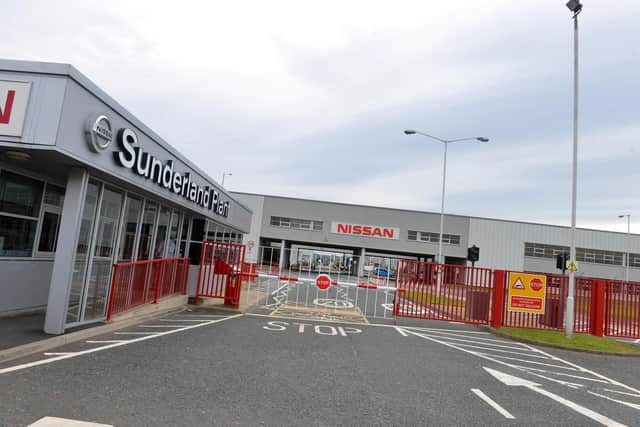How self-driving HGV trial at Sunderland's Nissan plant could prevent future supply 'nightmares'
and live on Freeview channel 276
Queues at petrol stations, empty pumps – and warnings over empty supermarket shelves – have dominated the news headlines in recent days amid a shortage of HGV drivers blamed on the pandemic and Brexit.
But a trial of technology at Sunderland’s Nissan plant could prove a long-term solution to such problems, according to two industry experts.
Advertisement
Hide AdAdvertisement
Hide AdWriting for The Conversation, academics from Coventry University highlighted work at the plant’s test track involving a 40-tonne HGV being piloted over a 5G communication network.


Siraj Ahmed Shaikh, professor of Systems Security, and Giedre Sabaliauskaite, associate professor at the university’s Institute for Future Transport and Cities, said ‘teleoperation’ could prevent future future HGV driver shortages by ‘taking the driver out of the driver’s seat altogether’.
“At present, the teleoperated lorry is being put through its paces at the Nissan test track in Sunderland as part of a ‘last mile delivery system’ – transporting goods on the final, shortest leg of their journey – to support manufacturing logistics,” they wrote.
"It’s a fitting example of how human effort can be relieved from the most intensive stage of the logistical chain.
Advertisement
Hide AdAdvertisement
Hide Ad“To bring this vision to reality, the retailer Wilko recently made a £3million investment into StreetDrone – one of the key partners with us on the teleoperated HGV project.
"StreetDrone is now aiming to bring this technology to UK roads by the end of 2023, albeit initially in smaller vehicles than HGVs.”
The project came about after the North East Automotive Alliance (NEAA) and partners at Sunderland City Council, Newcastle University, Vantec, Coventry University, Connected Places Catapult, StreetDrone and Perform Green, secured funding for a 5G-enabled connected and automated logistics (CAL) “proof of concept” pilot
This £4.9million project was granted £2.4million from the Government’s 5G Create scheme, a £30million open competition combining British creativity with innovative new uses for 5G.
Advertisement
Hide AdAdvertisement
Hide AdPartners said the project will deliver a huge stride forward in CAL, proving ‘last-mile delivery’ for an autonomous HGV up to 40 tonnes on a private road.
Paul Butler, CEO of the NEAA, speaking at the time the funding was announced in 2020, said: “The North East is a beacon of automotive productivity boasting high levels of automation and one of the most dynamic workforces.
"Automated last-mile logistics is the next major innovation challenge in our continual drive for operational efficiency. This project will take 5G enabled solutions out of the testbed into an operational manufacturing environment.”
“Through our industrial base and the unique assets of our road transport sector, the North East offers an ideal location to support the design, development, and manufacture of CAL solutions. Our vision is that this will be the catalyst for establishing a globally unique centre of excellence and operational test facility for CAL here in Sunderland.
Advertisement
Hide AdAdvertisement
Hide Ad“This will provide a stimulus for solution providers and industry to design and develop CAL solutions which meet specific industry challenges related to the factory of the future and intelligent supply chain – driving operational efficiencies and improving productivity.”